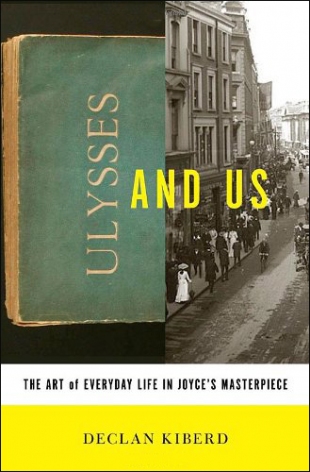James Joyce's experimental novel Ulysses was published in 1922 and stands as a stream-of-consciousness masterpiece. It covers approximately 16 hours in the lives of two men living in Dublin on June 16, 1904. Declan Kiberd, a professor of Anglo-Irish literature at University College Dublin, has written a creative, in-depth, and profound examination of this classic which celebrates a city, ordinary people, and their everyday rounds. Through the episodes in Ulysses, Kiberd probes various aspects of human life — waking, learning, thinking, walking, praying, dying, reporting, eating, reading, wandering, singing, drinking, ogling, birthing, dreaming, parenting, teaching, and loving.
The author considers Ulysses to be a work of great and wide-ranging wisdom: "This is a book with much to teach us about the world — advice on how to cope with grief; how to be frank about death in the age of its denial; how women have their own sexual desires and so do men; how to walk and think at the same time; how the language of the body is often more eloquent than any words; how to tell a joke and how not to tell a joke; how to purge sexual relations of all notions of ownership; or how the way a person approaches food can explain who they really are."
By examining a single day in the lives of Stephen Dedalus, Leopold Bloom, his wife Marion, and others; Joyce reveals how transformation takes place in everyday life. Bloom loves to walk and is convinced that movement is the essence of life. As he saunters through the streets of the city he pays close attention to what is going on around him. Kiberd writes that this act is "the nearest modern equivalent to prayer." Throughout the day, Bloom is troubled by the fear that life may mean nothing and that we are all passing through too quickly. He is seized by a noonday devil and plunges into a brief depression.
Kiberd ends this fascinating probe of Ulysses with chapters comparing and contrasting it with the Bible, Dante's comedy, Hamlet and company, and Homer's voyage as the journey of a soul. The author salutes Joyce's effort in this novel to rejoin the sacred and the everyday and to perceive the wisdom of the ages unfolding on the streets of Dublin, in the sharing of a bad cup of coffee, and in the musings of a wife yearning for sexual pleasure.
